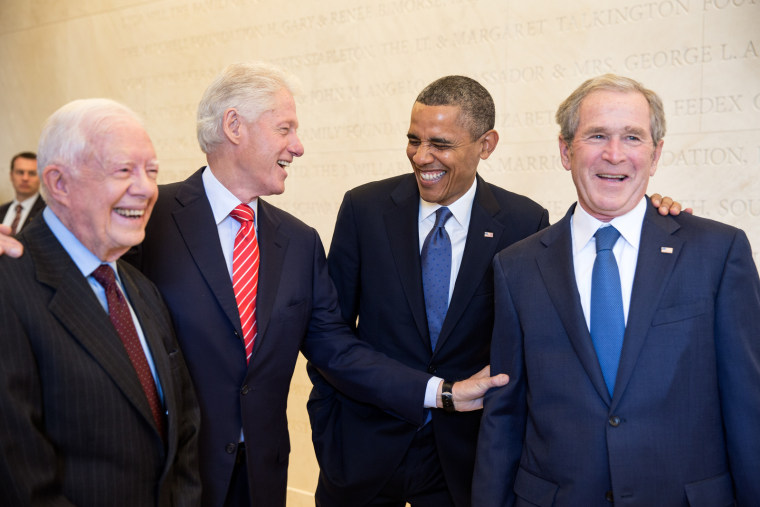I do understand the sentiment here and the frustration over the deep dysfunction that has taken over our politics. It is tempting to believe that a president could overcome the tribalism, polarization, and challenges of the permanent campaign, by doing what other presidents did to overcome their challenges. It is not as if passing legislation and making policy was easy in the old days. But here is the reality, starting with the Johnson presidency.... [H]is drive for civil rights was aided in 1964 by having the momentum following John F. Kennedy's assassination, and the partnership of Republicans Everett Dirksen and Bill McCullough, detailed beautifully in new books by Clay Risen and Todd Purdum. And Johnson was aided substantially in 1965-66 by having swollen majorities of his own party in both chambers of Congress -- 68 of 100 senators, and 295 House members, more than 2-to-1 margins.
Ronald Reagan was a master negotiator, and he has the distinction of having two major pieces of legislation, tax reform and immigration reform, enacted in his second term, without the overwhelming numbers that Johnson enjoyed in 1965-66. What Reagan did have, just like Johnson had on civil rights, was active and eager partners from the other party. The drive for tax reform did not start with Reagan, but with Democrats Bill Bradley and Dick Gephardt, whose reform bill became the template for the law that ultimately passed. They, and Ways and Means Chairman Dan Rostenkowski, were delighted to make their mark in history (and for Bradley and Gephardt, to advance their presidential ambitions) by working with the lame-duck Republican president. The same desire to craft transformative policy was there for both Alan Simpson and Ron Mazzoli, a Senate Republican and a House Democrat, who put together immigration legislation with limited involvement by the White House. As for Bill Clinton, he was as politically adept as any president in modern times, and as charismatic and compelling as anyone. But the reality is that these great talents did not convince a single Republican to support his economic plan in 1993, nor enough Democrats to pass the plan for a crucial seven-plus months; did not stop the Republicans under Speaker Newt Gingrich from shutting down the government twice; and did not stop the House toward the end of his presidency from impeaching him on shaky grounds, with no chance of conviction in the Senate. The brief windows of close cooperation in 1996, after Gingrich's humiliation following the second shutdown, were opened for pragmatic, tactical reasons by Republicans eager to win a second consecutive term in the majority, and ended shortly after they had accomplished that goal.
